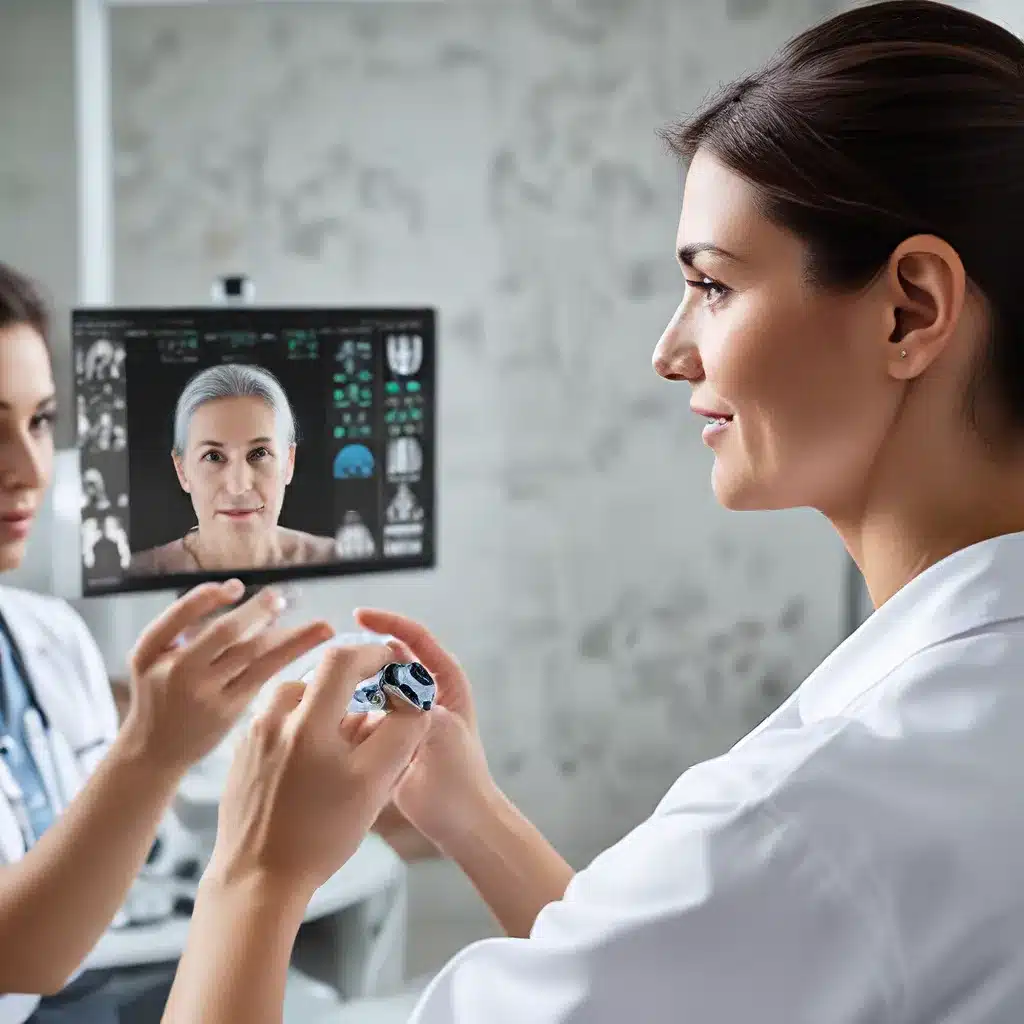
Revolutionizing Patient Monitoring: The Power of Sensor Networks
Sensor networks have emerged as a transformative technology in the healthcare industry, offering unprecedented opportunities to enhance patient monitoring, improve clinical decision-making, and ultimately, transform patient outcomes. These interconnected systems of sensors, communication protocols, and data processing algorithms are enabling healthcare providers to gather, analyze, and respond to a wealth of real-time patient data, revolutionizing the way we approach patient care.
At the heart of these advancements lies the ability of sensor networks to continuously monitor vital signs, track patient movements, and detect early warning signs of health issues. By integrating wearable devices, implanted sensors, and environmental monitoring systems, healthcare providers can now gain a comprehensive, 360-degree view of a patient’s health status, allowing for proactive intervention and personalized treatment plans.
Recent studies have highlighted the remarkable potential of sensor networks in enhancing patient outcomes, particularly in the management of chronic conditions, such as diabetes, cardiovascular disease, and neurological disorders. These technologies can provide early detection of fluctuations in blood glucose levels, heart rate variability, and cognitive function, empowering patients and healthcare teams to make informed decisions and take swift action to mitigate potential complications.
Transforming Healthcare Delivery: IoT Applications in Sensor Networks
The integration of Internet of Things (IoT) technologies with sensor networks has further amplified the impact of these innovations on healthcare delivery. By enabling real-time data transmission, cloud-based analytics, and remote monitoring capabilities, IoT-powered sensor networks are revolutionizing the way healthcare is accessed and delivered.
Telemedicine and remote patient monitoring have become increasingly prevalent, allowing healthcare providers to monitor patients’ conditions, adjust treatment plans, and provide timely interventions without the need for in-person visits. This not only improves patient convenience and accessibility but also reduces the burden on healthcare systems, particularly in underserved or rural areas.
Moreover, IoT-driven sensor networks are paving the way for personalized and predictive healthcare. By collecting and analyzing vast amounts of patient data, these systems can identify patterns, detect anomalies, and predict potential health issues before they manifest, enabling proactive care and improved disease management.
Ensuring Secure and Energy-Efficient Sensor Networks
As sensor networks become more ubiquitous in healthcare, the importance of security and energy management cannot be overstated. Sensitive patient data and critical medical devices must be safeguarded against cyber threats, while ensuring the uninterrupted operation of these systems.
Advanced security protocols and encryption techniques are being developed to protect sensor networks from unauthorized access, data breaches, and malicious attacks. These measures include end-to-end encryption, secure communication channels, and robust access control mechanisms, ensuring the confidentiality, integrity, and availability of healthcare data.
Additionally, the energy efficiency of sensor networks is a crucial consideration, as these systems often operate in remote or mobile environments, where battery life and power consumption are critical factors. Innovative energy-harvesting techniques, power-optimized sensor designs, and intelligent power management algorithms are being employed to extend the operational lifespan of sensor-based healthcare solutions, ensuring uninterrupted patient monitoring and data collection.
The Future of Sensor Networks in Healthcare
As the healthcare industry continues to evolve, the transformative potential of sensor networks is poised to shape the future of patient care. Advanced analytics, machine learning, and artificial intelligence will further enhance the capabilities of sensor networks, enabling predictive diagnostics, personalized treatment plans, and proactive intervention strategies.
Moreover, the integration of sensor networks with emerging technologies, such as augmented reality, robotics, and genomics, will unlock new frontiers in healthcare innovation. These convergences will empower healthcare providers to deliver more precise, personalized, and effective care, transforming the patient experience and improving overall health outcomes.
The advancements in sensor network design, IoT applications, security, and energy management are not merely technological achievements but catalysts for a healthier and more resilient future. By harnessing the power of these transformative technologies, the healthcare industry can redefine the boundaries of patient care, enhance the quality of life, and pave the way for a healthier, more connected world.
To explore the latest developments and innovations in sensor networks, visit sensor-networks.org, a leading resource for professionals, researchers, and enthusiasts in the field of sensor networks and IoT.